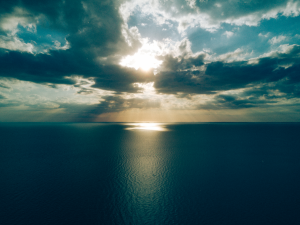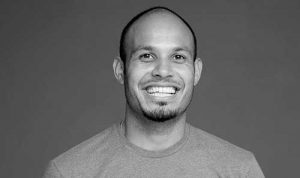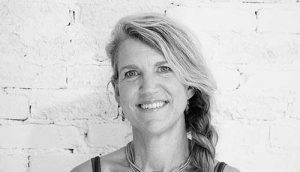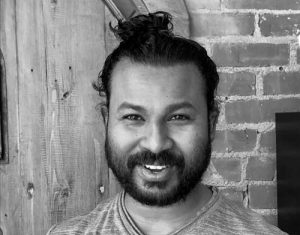
This month’s blog from Joseph Satlak offers sentiments worth cultivating at the beginning of the summer season and provides us with some insight into the origins of Santosh Karmachariya’s first name.
I met Armando when I first moved to Portland, Maine in the mid 1980s. He ran a small shoe repair business at the foot of Munjoy Hill in Portland, Maine. He passed away in 2013 and I have been thinking about him at the start of this summer season.
I first visited his shop to get some shoes resoled. Later, I would use any excuse to stop by. We would talk about baseball or the Saturday opera at the Met that he loved. On occasion I could get him to talk about his life in Cuba and his journey to the U.S. in the 1960s. I was interested in Armando. His life had a wisdom and refinement that appealed to me. He worked long hard hours, yet always had an uplifting smile for me. Armando may have never done a downward facing dog, but in my book he was a real yogi. In spite of all the hardship and challenges that he had faced he was a happy man, a thankful man. He had mastered the challenging yoga practice of santosha (contentment) one of five personal disciplines and practices referred to in the yoga sutras as the niyamas.
Santosha is a disinterest in accumulating more than ones immediate needs: “To be thankful with what one has even when there is a lack.” I wished that I was content. Armando never told me how to be content. I came to yoga as a searcher, I wanted to be happy, I wanted to be content. My first trip to India in the mid 1990s was an extension of this search. I felt that I could get the answers from the yoga masters there.
Mr. Iyengar, his daughter Geeta, and son Prashant were the heart and soul of the Iyengar Institute in India. They taught me the physical practice of the yoga postures (asanas) and rooted the teaching in yoga scripture. For them, I believe, the practice of the asanas was just the outer structure for the real work of yoga, which can be subtle and deeply psychological. As real yoga masters the Iyengars are intimate with the niyama of santosha (contentment). At the time, however, I did not understand why they never seemed satisfied with their students’ work. Their general dissatisfaction fueled my strong desire to please. This was to become a driving force in my relationship with yoga. It led to certain results in the performance of the poses, but did little to leave me with a sense of gratitude and contentment with my life.
At the end of a particularly difficult class where I had struggled to balance in headstand I was puzzled by the paradox of contentment. We are told in the yoga texts to practice contentment and yet the motivations for many of our actions in life are rooted in some level of discontentment. We want the world, ourselves and even our yoga postures to be otherwise and get stuck on some preconceived notion of a result. I began to wonder if I should try harder to be happy with what I can do today and less concerned about some elusive result.
My return home to America required a long journey from Pune to Mumbai. I had become skillful at keeping a bearable distance from the suffering all around but after so many weeks of intense yoga practice my defenses had broken down. Looking up from a yoga book I was reading on the bus I viewed the sprawling, horrifying slum that surrounded the Mumbai airport. As far as the eye could see people were living in plastic or corrugated metal huts that seemed to float on a sea of shallow water, the product of the early monsoon. I thought about my life in America and resolved that I would try every day to be happy for what I had. I would pay attention to my home, grateful for my life, thankful just to be able to practice yoga and less concerned with goals and results.
I returned to my yoga book looking for the sutra about contentment. The commentary read: “True happiness comes from contentment with what one has, not with thinking that one will be happy when one gets all that one desires……one only has to wear one pair of shoes, one doesn’t need to cover the earth with leather.”
As I looked up from my book I thought about my friend Armando. I am sure it is a sentiment that he would agree with.



